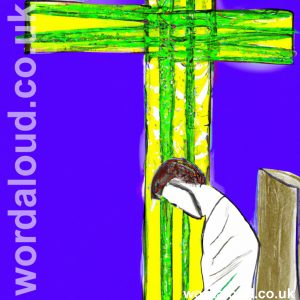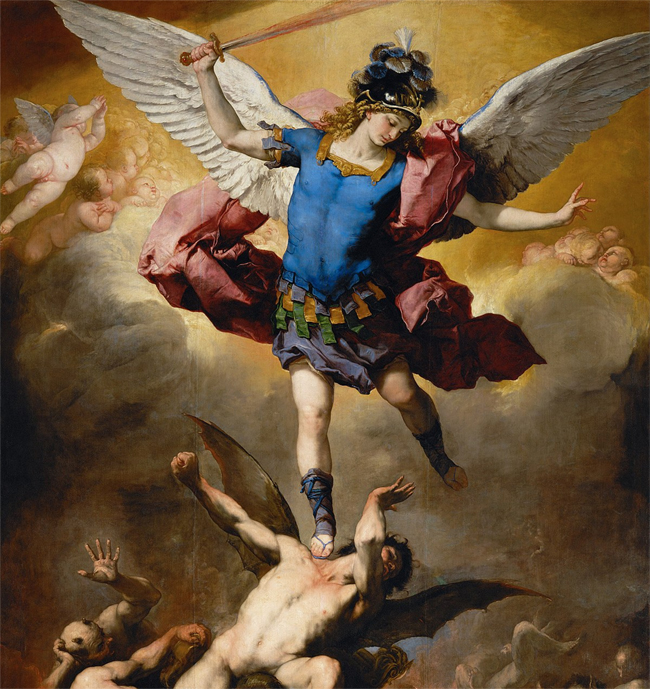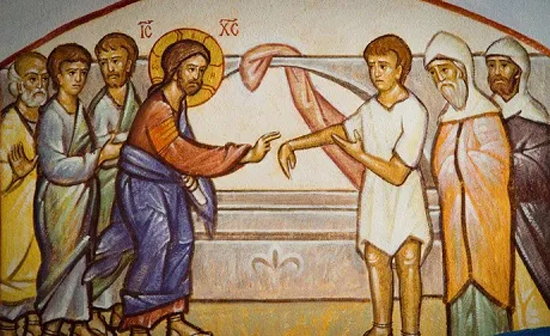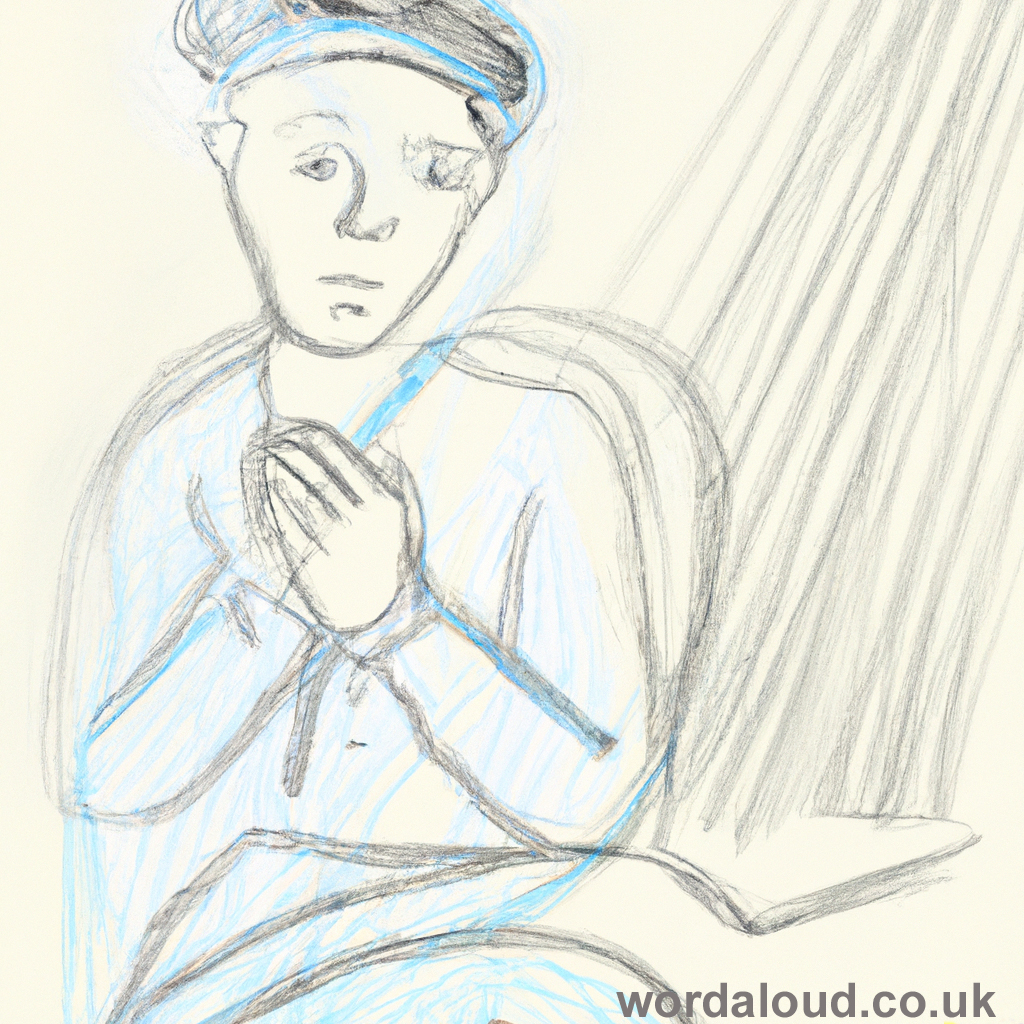Christian Art | George Herbert | The Temple | The Church | Good Friday
George Herbert | The Temple | The Church | Good Friday
O my chief good,
How shall I measure out thy bloud?
How shall I count what thee befell,
And each grief tell?
Shall I thy woes
Number according to thy foes?
Or, since one starre show’d thy first breath,
Shall all thy death?
Or shall each leaf,
Which falls in Autumne, score a grief?
Or cannot leaves, but fruit, be signe
Of the true vine?
Then let each houre
Of my whole life one grief devoure;
That thy distresse through all may runne,
And be my sunne.
Or rather let
My severall sinnes their sorrows get;
That as each beast his cure doth know,
Each sinne may so.
Since bloud is fittest, Lord, to write
Thy sorrows in, and bloudie fight;
My heart hath store, write there, where in
One box doth lie both ink and sinne:
That when sinne spies so many foes,
Thy whips, thy nails, thy wounds, thy woes,
All come to lodge there, sinne may say,
No room for me, and flie away.
Sinne being gone, oh fill the place,
And keep possession with thy grace;
Lest sinne take courage and return,
And all the writings blot or burn.
![]()

George Herbert | The Temple | The Church | Good Friday
This poem explores themes of atonement, humility, and the desire for spiritual purification. The poet addresses God, expressing a desire to quantify the suffering and sacrifice of Christ’s blood. The poet’s question, ‘How shall I measure out thy blood?’ suggests an intent to understand the magnitude of Christ’s suffering and to reciprocate in a meaningful way. However, the poet acknowledges the difficulty in fully grasping or repaying this sacrifice.
The poem contemplates ways to measure Christ’s suffering, considering the number of his ‘foes’ or the duration of his life, symbolized by the star at his birth. The poet also proposes more natural imagery, including autumn leaves or fruits, to signify the extent of grief and sacrifice. These metaphors underscore the poet’s sense that Christ’s suffering permeates creation itself, as each leaf or fruit could serve as a token of the ‘true vine’, a reference to Christ. Here, nature functions as a reminder of both human mortality and divine sacrifice, reflecting the connection between earthly symbols and spiritual truths.
The poet then suggests an alternative: to allow each hour of his own life to be consumed by sorrow as a way of participating in Christ’s suffering. This line reflects a desire for personal suffering to be a response to Christ’s distress, suggesting that the poet feels a duty to integrate this sorrow into his daily life. The sun metaphor here, ‘be my sun,’ could indicate both the ever-present influence of Christ’s sacrifice and the desire for this influence to illuminate and guide the poet’s life.
The poet also suggests that each individual sin could carry its own sorrow, similar to how ‘each beast his cure doth know’. This line may imply that every sin has a corresponding form of repentance or healing, and that each should bring the poet to a form of personal penitence. This individual approach to repentance reveals the poet’s understanding of sin as multifaceted, requiring different forms of introspection and sorrow.
Toward the end, the poet turns to blood as a fitting medium to ‘write thy sorrows in’. They suggest that his heart, containing both ‘ink and sin’, could serve as a space for God to record Christ’s sacrifice. This ‘writing’ serves as a method to internalize and retain the memory of Christ’s suffering. The poet envisions Christ’s wounds and tools of suffering—whips, nails, wounds—as ‘foes’ that could occupy his heart, filling it so completely that sin itself would be driven out, stating, ‘No room for me, and fly away.’
In the closing lines, the poet petitions for God’s grace to take over the ‘place’ left by sin’s departure, ensuring that God’s presence fills the void. The plea for ‘possession’ by divine grace conveys the poet’s concern that, without God’s continual influence, sin might return, ‘blot or burn’ the writings on his heart, erasing Christ’s sacrifice. This ending reveals the poet’s awareness of human vulnerability to sin and the necessity of divine grace as a protective and sustaining force.
The poem thus portrays the poet’s yearning for an internalized connection to Christ’s suffering, seeking not only to remember it but to live in a state of continuous reverence and repentance. Through these varied metaphors, the poem reflects a desire to transform personal weakness into a site for divine presence.








